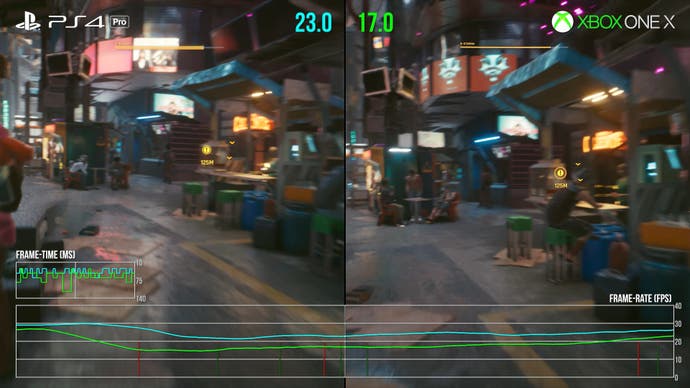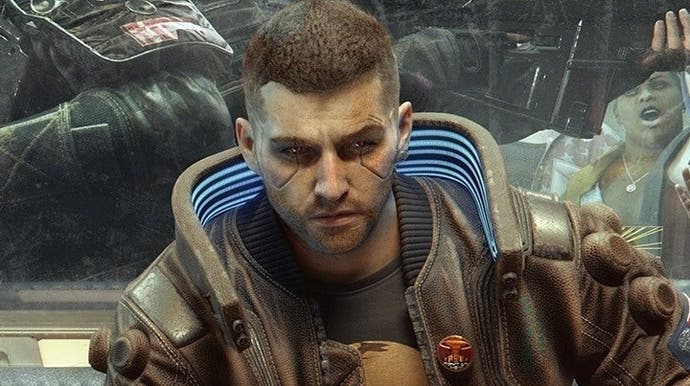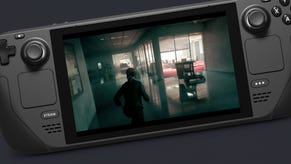Cyberpunk 2077: how bad is last-gen performance - and what will it take to fix it?
The long road ahead.
It's an extraordinary state of affairs. CD Projekt Red has publicly admitted that the last-gen console versions of Cyberpunk 2077 have profound issues, that the scale of the technical issues facing the old machines was under-estimated, and that the game was released anyway. In both a public statement and an emergency investor call, the firm talks about improving the last-gen experience and sorting out crashes, glitches and bugs. A hotfix patch is already out, with another due within seven days, while more substantial patches are due in January and February.
"After three delays, we as the management board were too focused on releasing the game," said CDPR joint-CEO Adam Kiciński. "We underestimated the scale and complexity of the issues, we ignored the signals about the need for additional time to refine the game on the base last-gen consoles. It was the wrong approach and against our business philosophy. On top of that, during the campaign, we showed the game mostly on PCs."
CDPR says its hope is that its efforts will "let us rebuild the trust we have lost", but the process by which we ended up in this situation is astonishing, representing a failure in the entire process of validating that a console game is ready for launch. Typically, a game is finished and it is submitted to the third party departments of the platform holders, who test it against a range of stringent criteria, sending the game back if it's not up to scratch.
Leaving aside the remarkably bad performance for a moment, a game with this level of instability (specifically in terms of the game actually crashing) would not normally get through certification - yet somehow, Cyberpunk 2077 did. In the investor call, CDPR specifically absolves Microsoft and Sony from responsibility, saying that it told the platform holders that the issues would be addressed. Game developer Rami Ismail goes into the process of certification in some depth here, saying that waivers from the platform holders can be granted that exempt games from certain tests within the certification process. It is not uncommon for games to reach the market with issues but Cyberpunk 2077's are so glaring - and so widespread - that perhaps the system needs to be reviewed.
At this point in time, we've tested every console version of the game available, but owing to the sheer size of the game and the fact it's available on so many different systems, we're not going to claim to have any kind of definitive analysis, just one set of data points. Experiences seem to vary from user to user, from system to system, but what is telling is that the problems manifest as soon as you enter Night City. Even content we've seen in demos (areas of the game you'd expect to see tested and re-tested over years) can have some profound issues. With that in mind, it does strain credibility that CDPR thought they would be able to address so many issues in the time it had available. Indeed, the patch schedule the firm is suggesting points to a game that needs weeks if not months of further development time.
In addition to that, I think what's concerning here is that the perceived definition of 'profound issues' may well vary from CD Projekt Red's. In its official statement on the issues and the remedies it is pursuing, the developer does not specifically address performance. The only specifics we get relate to other issues, such as the game crashing, or the myriad bugs. In the emergency investor call, CDPR even warns us to be realistic about performance, but does so in a curious way by comparing the last-gen versions of Cyberpunk 2077 to the PC and next-gen versions.
Nobody expects the base Xbox One to hit 60 frames per second like PlayStation 5, but dramatically improving performance so we aren't gaming for much of the duration between 15-30fps is just as important as resolving the various bugs and crashes. Maybe this is what CDPR means when it says that the patches "won't make the game look like it's running on a high-end PC or a next-gen console, but it will be closer to that experience than it is now." - but it's still very non-descript. Entire stretches of Xbox One gameplay can roll out in the low 20fps area, and dips beneath are frequent. Also concerning is that CDPR talks about the base consoles specifically, when the enhanced machines - PS4 Pro and Xbox One X - also have issues, especially the Microsoft console.
So, beyond the bugs, crashes and glitches, what are the issues facing the last-gen machines? Everything about what we've seen so far suggests bottlenecks on multiple fronts. The base Xbox One S is the weakest last-gen machine and has the most issues - performance is even lower than the already poor PlayStation 4, visual effects are pared back more noticeably and resolution seems to drop to lows in the region of just 1200x675. On the other end of the scale, our tests suggest that PlayStation 4 Pro is probably the most stable last-gen version available right now - performance can still drop dramatically, but it can still beat out Xbox One X by up to five frames per second, which is actually a very big deal when the frame-rate is so low to begin with. The shot below highlights the issue - navigating the city, or driving through it at speed causes problems on every last-gen console.

In terms of what's actually the reason for these performance problems, we may actually have some insight here, owing to the fact that the next-gen consoles are fundamentally running the last-gen codebase, albeit with some tweaks. PlayStation 5 is effectively running the PlayStation 4 code with an unlocked frame-rate, while Xbox Series consoles are receiving Xbox One code with some additional improvements to quality settings, including improved density in NPCs and vehicles along with the addition of ambient occlusion alongside other tweaks. Xbox Series S may well have a lower power GPU than Xbox One X, but it's actually delivering a far more consistent, more enjoyable experience - and this too is running from the same core codebase.
Therefore, a process of deduction suggests the following: first of all, the lack of memory on the last-gen machines may not be the issue - Xbox One X has 9GB of useable RAM and still has serious problems. Meanwhile, Series S has less memory and seems to deliver a better, more consistent experience overall. Where the machine has clear wins against the last-gen consoles is in terms of storage and - crucially - CPU power. The evidence does suggest that when Cyberpunk 2077 is running at its worst, the lack of CPU grunt is the primary culprit. It's especially evident when driving around the city - the background streaming systems are very heavy on CPU and all versions buckle. Even the next-gen console, Stadia and PC builds see depressed performance here. The one issue with this theory is Xbox One X - its CPU is faster than PS4 Pro's, yet the Pro routinely beats it in performance terms across the board, albeit by varying degrees.
Most of our data does come from launch code and a 1.04 hotfix has already emerged which seeks to address some of the most crucial game-breaking issues, but there's little indication that performance is a priority right now, and to be fair, simply getting the game to operate without freezing, crashing or glitching must be the primary focus. But fundamentally, the challenge facing CDPR is enormous. Based on frame-rates that can drop into the teens, the engineering effort required in overhauling the game to run well on a last-gen Jaguar CPU is going to be extraordinary.
With The Witcher 3, we did see significant improvements as the new patches rolled in and complex scenes like Novigrad and the infamous Crookback Bog did get better over time, so there is the hope that something can be done here to improve matters - but to be frank, the idea of adding 50 per cent more performance or even doubling frame-rate in Cyberpunk 2077 is a phenomenal ask for the developers. However, when the base consoles run so poorly - Xbox One especially - that is what is needed. Right now, it really does look as though the game is simply too ambitious for the most outdated of console hardware (and even the more powerful enhanced machines are struggling) but hopefully across the following months, CD Projekt Red can prove us wrong, delivering a stable, bug-free experience that hits its 30 frames per second target.











